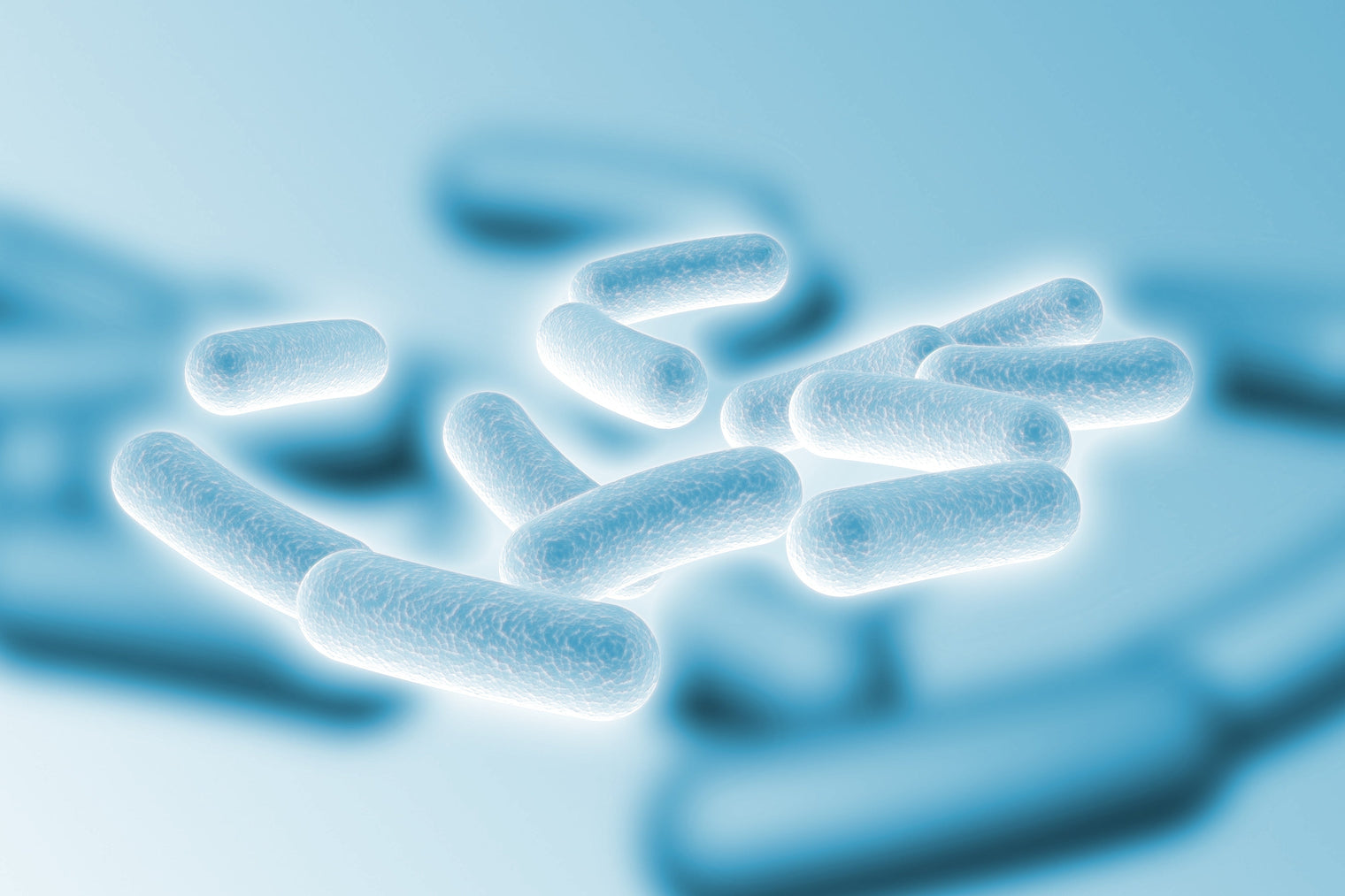I recently watched my dog Max struggle with digestive issues. His symptoms got worse despite trying different foods. My veterinarian suggested probiotics - something I knew little about at the time. After three weeks of giving Max specific probiotic strains, his digestive problems cleared up completely.
Many veterinarians now recognize that probiotics do more than help with digestion. They can improve your dog's mood, reduce allergies, and even help with bad breath. But here's what's interesting: not all probiotics are created equal. Some popular brands don't contain the right strains for dogs, while others might have ingredients that could harm your pet.
This guide breaks down everything about dog probiotics - from choosing the right strains to avoiding common mistakes that could waste your money or harm your pet.
Step 1: Identifying the Best Probiotic Strains for Dogs
-
Narrow down probiotics that match your dog's health needs.
-
Know the strains that are effective for specific issues.
-
Always speak to your vet for tailored advice.
1. Does Your Dog Need Probiotics? Key Signs to Watch
Before diving into strains, it's crucial to pinpoint your dog's health needs. Observing symptoms like digestive discomfort, allergies, or even skin issues can provide clues. By understanding these health markers, you can make an informed decision about whether probiotics are suitable for your pet.
Take into account their age and breed. Puppies and older dogs have different digestive systems compared to adults. Data on age-related digestive changes could inform your choice. Breed plays a role too; some breeds can be prone to specific gastrointestinal issues.
2. Research Probiotic Strains
Not all probiotics work the same! Here are the top strains for dogs and their benefits:
-
Lactobacillus – Balances gut flora & supports digestion.
-
Bifidobacterium – Boosts immunity & improves nutrient absorption.
-
Bacillus subtilis – Reduces allergies & supports skin health.
3. Consult with a Veterinarian
A vet does more than treat illnesses; they offer guidance on preventative health. Consultation is essential when considering probiotics. They can recommend the best brands and strains tailored to your dog's condition. Vets are also aware of the latest product recalls or updates, which is vital when the safety of new supplements is in question.
4. Explore Alternative Options
While specialized dog probiotics are best, human-grade options can work if they include suitable strains. Errors can lead to ineffective results or even harm. The dog microbiome is complex and varies considerably between individuals, making customized options sometimes more practical.
5. Addressing Common Concerns
How do you know if your dog needs a probiotic? Look for signs like loose stool, excessive gas, or skin irritation. It is also useful after antibiotic treatment to restore gut balance. However, anecdotal evidence often drives probiotic efficacy for dogs. While many pet owners report improvements, comprehensive scientific backing is limited.
Not every supplement will work for all dogs. The effectiveness of a probiotic can vary between individuals. That's why ongoing observation and records of changes in health conditions are crucial when introducing new probiotics to the diet.
Step 2: Administering Probiotics for Dog Gut Health
-
Use probiotics in food or treats for easy intake.
-
Monitor digestion, mood, and any allergies.
-
Start with labelled doses, adjust based on dog size.
1. Start with the Right Dosage
Choosing the correct dosage is crucial for your dog's health. Begin with the dosage recommendations on product labels. These often suggest 1-4 billion CFUs (colony-forming units) per day. For smaller dogs under 20 pounds, start with 1 to 2 billion CFUs. Medium dogs between 20 and 50 pounds do well with 2 to 3 billion CFUs. Dogs over 50 up to 100 pounds can take 3 to 4 billion CFUs, while those over 100 pounds can handle up to 5 billion CFUs daily. Monitoring your dog's response is essential. Some dogs may experience slight side effects if the dosage is too high. Adjustments can be made based on size and response.
Importance of Slow Introduction
Introduce probiotics slowly into your dog's routine. Begin by giving the probiotic every other day. After a week, if there are no adverse reactions, you can increase the frequency to daily dosages. This slow introduction helps the gut microbiome adjust to the new bacteria.
2. Integrate with Dog's Diet
Administering probiotics is easier if integrated into your dog's daily meals. You can add them directly to their food or use probiotic-enriched treats. Mixing it thoroughly ensures even distribution and better consumption. If using powdered probiotics, start by mixing a small amount into wet food. Dogs often can't detect probiotics this way, making it effective.
Consistency is key here. Regular daily administration helps maintain a stable microbiome, which supports digestion. If using capsule forms, try placing them in a piece of cheese or soft treat to make consumption more appealing.
Timing Matters
Administer probiotics at the same time each day. Ideally, give them about 30 minutes before meals. This increases the chances of beneficial bacteria reaching the gut effectively without being heavily digested by stomach acids.
3. Observe Health Improvements
Monitor their stool consistency and frequency. Diarrhea should reduce, aligning with findings that probiotics can cut down gastrointestinal symptoms by 30-50%. Also, pay attention to changes in behavior. Dogs may seem more energetic or exhibit an improved mood as digestive health improves.
Reduction in allergy symptoms, like itching or skin reactions, can also indicate progress. Keep a log of any noticed changes or improvements to provide detailed insights to your vet on follow-up visits.
What Signs Indicate a Need for Probiotics?
Knowing when your dog could benefit from probiotics is crucial. Signs like loose stools, frequent digestive issues, excessive gas, and sudden mood changes can suggest an imbalance in the gut microbiome. If your dog has recently been on antibiotics, they might need probiotics to restore beneficial bacteria. Dogs under stress from travel or environmental changes may also benefit from them daily.
Veterinarians often suggest administering probiotics as part of long-term health care, particularly for pets showing consistent signs of digestive distress. Daily supplementation is generally considered safe and beneficial for most dogs. However, severely immunocompromised dogs need closer vet supervision before starting probiotics.
This sets a solid foundation for enhancing your dog's gut health smoothly and effectively.
Advanced Tips for Maximizing Benefits of Probiotics for Dogs
-
Natural ingredients like Greek yogurt boost probiotic intake.
-
Over-relying on probiotics for all ailments isn't wise.
-
Human probiotics aren't always suitable for dogs.
Additional Advice on Feeding Natural Probiotics
Natural probiotics can be a great choice. Adding Greek yogurt to your dog’s diet works well. The probiotics in yogurt can aid digestion and boost your dog's gut health. Make sure the Greek yogurt is plain and has low sugar to avoid health issues. Be sure to start with small quantities. Observe any changes in your dog's behavior or stool. This can help monitor how well your dog tolerates yogurt as a natural probiotic source.
Yogurt is not the only option. Other fermented foods, like kefir, can be helpful. Use these sparingly, though, and pay attention to how your dog reacts. Some dogs might have lactose intolerance and not do well with dairy-based probiotics. If in doubt, check with your vet before introducing new foods.
Common Pitfalls and How to Avoid Them
One common mistake is relying too much on probiotics. While probiotics have many advantages, they aren't cure-alls. They help with digestion and immunity but can’t fix all health problems. Consider them as part of a holistic approach to health. It's important to combine them with a balanced diet, regular exercise, and regular vet check-ups.
Another pitfall is using human-grade probiotics. Dogs have different digestive systems and may react differently. Human probiotics can dehydrate or upset your dog's stomach. Always consult with a vet before switching. Vet-recommended products should be prioritized over ones designed for humans.
Explore Strain Specificity
Not all probiotic strains are equal. Some strains are better for gut health, while others might help with allergies. Understanding strain specificity helps you choose the right one. Lactobacillus and Bifidobacterium are common strains. Yet, each has unique benefits. Lactobacillus aids gut health, while Bifidobacterium can improve immune response.
Monitor Your Dog’s Reaction
Probiotic benefits can vary widely. To maximize their use, watch your dog's responses closely. Keep a diary listing what you observe, like stool quality or energy levels. This documentation can be valuable for sharing observations with your vet. Decide if the probiotic is working as intended or if adjustments are needed.
A seemingly minor change, like stool becoming more regular or easier to pick up, might indicate improvement. Behavioral changes might also suggest health benefits, as mood can relate to gut health.
Consulting with Professionals
Always involve veterinary professionals. Even with in-depth knowledge, a professional perspective can protect your dog’s health. They have the expertise to interpret symptoms that books or articles might not fully address. Vets can offer solutions tailored to your dog’s specific condition.
Networking with other experts can help. Pet forums and professional networks might provide useful advice. Online courses or webinars focused on dog nutrition can deepen your understanding further.
Troubleshooting Common Issues
Implementing probiotics for dogs can be rewarding but sometimes tricky. Unwanted reactions might occur, but with the right steps, they can be addressed efficiently.
Managing Dosage to Address Diarrhea
Diarrhea is a common side effect when introducing probiotics. It often happens when the dosage is too high or increased too rapidly. Start by reducing the dosage incrementally. A slower introduction allows the dog's system to adjust without overstimulation. Some experts suggest beginning with only a fraction of the product’s recommended amount. This cautious approach minimizes the risk of diarrhea and helps maintain a healthier gut balance.
Addressing Allergic Reactions
Aside from diarrhea, allergic reactions are another concern with probiotics. Allergies can manifest as skin irritations, swelling, and, in severe cases, anaphylaxis. Upon noticing signs such as rash or swelling, discontinue probiotic use immediately.
Consulting a vet is crucial to determine the cause and severity of the reaction. The vet might suggest allergy testing to identify specific triggers.
Monitoring and Documenting Responses
Keeping a record of your dog's response to probiotics can make tracking progress and adjusting dosages easier. An effective way to document this is by maintaining a detailed diary. Include observations about stool consistency, energy levels, and any adverse reactions. This diary can serve as a vital tool during consultations with your vet, providing both parties with a comprehensive view of the dog’s progress.
Investing time in this monitoring process has long-term benefits. By understanding individual reactions, pet owners can make informed decisions on probiotic use.
Conclusion
Research shows that 85% of dogs experience digestive issues at some point in their lives. With probiotics, we can change this statistic. The science behind dog probiotics is clear: they support gut health, boost immune function, and improve overall well-being.
The path to better dog health through probiotics isn't complex. It requires attention, patience, and careful observation. Your commitment to understanding and applying this knowledge will result in a healthier, happier pet.
Want a healthier, happier dog? Start adding probiotics today and see the difference! Need recommendations?

